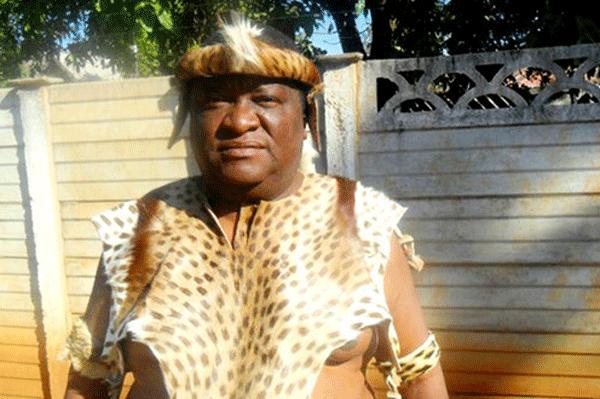News / National
Ndebele prince seeks reunification of Ngunis
18 Aug 2016 at 10:08hrs |
1031 Views

NDEBELE prince, Peter Zwidekalanga Khumalo, has said the Nguni ethnic groups in Zimbabwe, Zambia, Tanzania and Malawi are working hard to identify remnants of other Nguni ethnic groups as far as Kenya as they seek to form a united front in a globalising world.
Khumalo, who recently visited Malawi after being invited by the country's Ngoni royalty, Inkosi ya Makhosi M'mbelwa V to attend umthetho, an annual cultural festival at Mzuzu, said the Nguni people all over Africa believed that they are one people, "and there shouldn't be any reason, cultural or otherwise, that we should be seen as different".
"We are all part of the second largest ethnic group in Africa, after some Nigerian ethnic group. We need to take cultural leadership in the continent," he said.
Khumalo said it was inspiring to realise that even though the Ngoni of Malawi lost the Nguni language due to inter-marriages, "they still retained their culture in amazing levels".
"Each of the 14 chiefs of the kingdom brought to the function an impi (army) with shields, spears and they were all adorned in hides like the Zulus. Each impi sang and danced on stage exactly as the Zulus do in KwaZulu Natal [South Africa]. Surprisingly, their songs were in Zulu language and they danced isitshikitsha and indlamu as we do it here in Bulawayo and as it is done in KwaZulu Natal. Their praise poems were all in Zulu."
Khumalo said the theme of the annual cultural festival was on culture and climate change.
"Central to this was an emphasis that land and culture cannot be separated. It was emphasised that any group of people's land should not be sub-divided as this is tantamount to destroying a people's culture. For example, the Malawi people said, Mzimba district belongs to the them at grassroots levels and as such no politician should sit in Parliament and agree on allocating land without consulting them."
Khumalo said it was heartening to see the close co-operation between the government and the royal family shown by the presence of the Local Government minister, who was the guest of honour, Sports minister, and the Speaker of Parliament who all acknowledged the presence of opposition politicians.
Khumalo, who recently visited Malawi after being invited by the country's Ngoni royalty, Inkosi ya Makhosi M'mbelwa V to attend umthetho, an annual cultural festival at Mzuzu, said the Nguni people all over Africa believed that they are one people, "and there shouldn't be any reason, cultural or otherwise, that we should be seen as different".
"We are all part of the second largest ethnic group in Africa, after some Nigerian ethnic group. We need to take cultural leadership in the continent," he said.
Khumalo said it was inspiring to realise that even though the Ngoni of Malawi lost the Nguni language due to inter-marriages, "they still retained their culture in amazing levels".
"Each of the 14 chiefs of the kingdom brought to the function an impi (army) with shields, spears and they were all adorned in hides like the Zulus. Each impi sang and danced on stage exactly as the Zulus do in KwaZulu Natal [South Africa]. Surprisingly, their songs were in Zulu language and they danced isitshikitsha and indlamu as we do it here in Bulawayo and as it is done in KwaZulu Natal. Their praise poems were all in Zulu."
Khumalo said the theme of the annual cultural festival was on culture and climate change.
"Central to this was an emphasis that land and culture cannot be separated. It was emphasised that any group of people's land should not be sub-divided as this is tantamount to destroying a people's culture. For example, the Malawi people said, Mzimba district belongs to the them at grassroots levels and as such no politician should sit in Parliament and agree on allocating land without consulting them."
Khumalo said it was heartening to see the close co-operation between the government and the royal family shown by the presence of the Local Government minister, who was the guest of honour, Sports minister, and the Speaker of Parliament who all acknowledged the presence of opposition politicians.
Source - newsday
Join the discussion
Loading comments…


































